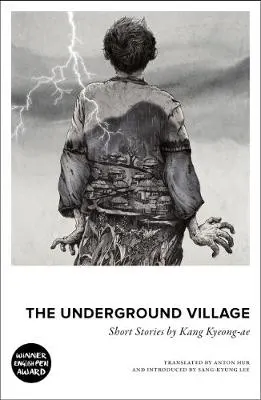Even if The Underground Village were to be underwhelming, it is worth attention for being perhaps the only collection of stories to come out of Japanese-occupied Manchuria (written by a lower-class female Korean communist born in what is now North Korea) that you’ll ever read.
Fortunately, thanks in no small part to some witty and infinitely clever translation wizardry by Anton Hur (read our interview with him here), it is also an engaging and moving batch of tales, told with raw honesty and strength.
‘Listen, sister. We are have-nots, and we have to look out for other have-nots. And more than that, we have to keep fighting to get out of this living hell.’

Strength in Diversity
Kang’s greatest strength here – her ability to wildly shift her tone and theme from story to story – comes in part from her having a diverse and mature imagination, and also from having experienced such a turbulent life herself. Each tale here is grounded in reality and the struggles of its time and place, but each also has the ability to surprise the reader with its style and tone.
An early story, Peasants, describes the life of a Christian missionary woman, proud and narcissistic, delivering sermons to local ‘savages’. With hyperbolic language, Kang and Hur have captured this woman’s vapid personality through a first-person lens; this creates some darkly comic moments as we delight in hating such a character.
To contrast this story, a later tale dances with qualities of horror and terror as an opium addict is arrested for the murder of his wife, and we are then taken along on a journey, from his wife’s perspective, to see what really happened to her.

It’s a chilling and sorrowful tale that leaves an uncomfortable itch upon the reader that cannot be scratched.
If you die, you must die on your own land […] I have never forgotten that it was our old land that knit my very bones! It is the only destiny that I have! Do you know this, or do you not?
Maria pounded the podium with her ivory-like hand. Her audience who had been silently mocking her, sighed at her words. They were remembering the days when they were kicked out of their own homes, dragging their children behind them.’
The second story in this collection – also the longest – was carried by a story and atmosphere reminiscent of Pearl S Buck’s The Good Earth.
The story, Salt, is divided into a handful of chapters, each one encapsulating a struggle (and often a loss) that the protagonist, a Korean wife and mother living in Japanese-occupied Manchuria must endure, with communist thugs and an unforgiving world darkening her every step.
In similar style to Buck’s The Good Earth, the writing here has a detached quality to it, with the saddening events being recalled clearly but without emotion, as though they are simply a part of life – tragic as it might be – that is not worth crying over. This quality almost demands more sympathy from the reader, as it does not ask us for pity but of course we will give it in armfuls anyway.
The Commitment of the Translator
The heights that The Underground Village manages to reach wouldn’t have been achieved without the astounding translation skills of Anton Hur. As a translator who understands not only his author’s intention, but also his audience’s intelligence, he refuses to shy away from cultural discussions in his books – something which some translators may fear would be too baffling for Western readers.
Hur is a savvy, caring, and committed translator who has breathed new life into a phenomenal collection of important stories which could never have existed in English without him.
Conclusion
With this collection, the importance of Kang Kyeong-ae’s writing to not just the world of Korean literature, but also its history, is plain to see. Kang has captured and expressed, with honesty and rawness, the strength and the despair of the women who survived (and didn’t survive) this turbulent time in the recent history of Korea and China.
Thanks to Hur’s diligence and Honford Star’s cleverness, another vital part of Korean literature has been exhumed and preserved.
Check out our reviews of Honford Star’s other books: Endless Blue Sky, Scales of Injustice, and Sweet Potato.



